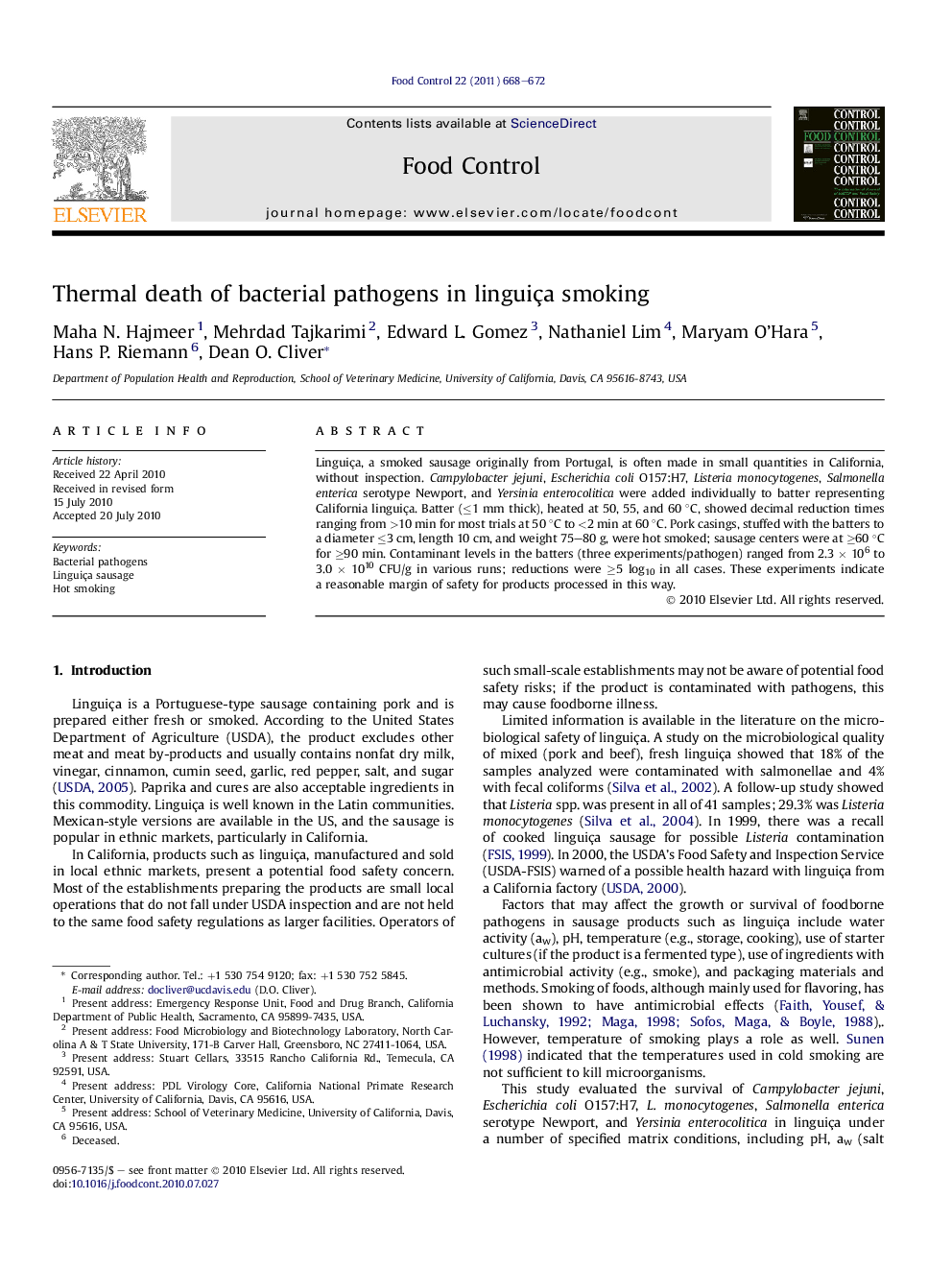| Article ID | Journal | Published Year | Pages | File Type |
|---|---|---|---|---|
| 6394656 | Food Control | 2011 | 5 Pages |
Abstract
Linguiça, a smoked sausage originally from Portugal, is often made in small quantities in California, without inspection. Campylobacter jejuni, Escherichia coli O157:H7, Listeria monocytogenes, Salmonella enterica serotype Newport, and Yersinia enterocolitica were added individually to batter representing California linguiça. Batter (â¤1 mm thick), heated at 50, 55, and 60 °C, showed decimal reduction times ranging from >10 min for most trials at 50 °C to <2 min at 60 °C. Pork casings, stuffed with the batters to a diameter â¤3 cm, length 10 cm, and weight 75-80 g, were hot smoked; sausage centers were at â¥60 °C for â¥90 min. Contaminant levels in the batters (three experiments/pathogen) ranged from 2.3 Ã 106 to 3.0 Ã 1010 CFU/g in various runs; reductions were â¥5 log10 in all cases. These experiments indicate a reasonable margin of safety for products processed in this way.
Keywords
Related Topics
Life Sciences
Agricultural and Biological Sciences
Food Science
Authors
Maha N. Hajmeer, Mehrdad Tajkarimi, Edward L. Gomez, Nathaniel Lim, Maryam O'Hara, Hans P. Riemann, Dean O. Cliver,
